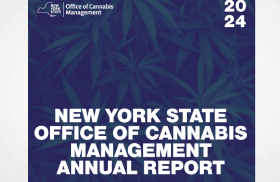The Role of a Cannabis Lawyer
A cannabis lawyer specializes in the legal aspects of the cannabis industry.
- Advising on Compliance: Ensuring that businesses comply with state and federal regulations.
- Licensing Assistance: Guiding clients through the application processes for cannabis licenses and permits.
- Contract Drafting: Creating and reviewing contracts related to cannabis operations.
- Dispute Resolution: Representing clients in legal disputes that may arise within the industry.
- Intellectual Property Protection: Assisting with trademark registrations and protecting proprietary information.
Why You Need a Cannabis Lawyer
- Complex Regulations: Cannabis laws vary significantly by state and can change frequently. A knowledgeable lawyer can help you understand these regulations and how they apply to your specific situation1.
- Risk Management: Engaging in the cannabis business involves various risks, including legal liabilities. A cannabis lawyer can help mitigate these risks through proper legal advice and documentation.
- Navigating Licensing: Obtaining a cannabis license can be a challenging process with many requirements. A lawyer can guide you through this process to increase your chances of success5.
Steps to Hire a Cannabis Lawyer
1. Identify Your Needs
Before searching for a cannabis lawyer, assess your specific needs:
- Are you starting a new cannabis business?
- Do you need assistance with compliance or licensing?
- Are you facing legal issues related to cannabis?
Understanding your requirements will help you find a lawyer with the right expertise.
2. Research Potential Lawyers
When looking for a cannabis lawyer, consider the following sources:
- Referrals: Ask for recommendations from other business owners in the cannabis industry or professionals who have previously worked with cannabis lawyers.
- Online Directories: Websites like Avvo or Martindale-Hubbell can provide listings of lawyers specializing in cannabis law.
- Legal Associations: Organizations such as the National Cannabis Industry Association (NCIA) may offer resources or referrals to qualified attorneys.
3. Evaluate Qualifications and Experience
Once you have a list of potential candidates, evaluate their qualifications:
- Specialization: Ensure they specialize in cannabis law and have experience handling cases similar to yours.
- Track Record: Look for lawyers with a proven track record of successfully assisting clients in the cannabis industry6.
- Education and Credentials: Verify their educational background and any relevant certifications or memberships in professional organizations.
4. Schedule Consultations
Arrange initial consultations with shortlisted lawyers. During these meetings:
- Discuss your specific needs and any legal issues you face.
- Ask about their experience with similar cases.
- Inquire about their approach to handling cannabis-related legal matters.
5. Assess Communication Style
Effective communication is crucial when working with a lawyer:
- Ensure they explain complex legal concepts in an understandable way.
- Pay attention to their responsiveness and willingness to address your questions.
6. Understand Fee Structures
Cannabis lawyers may charge differently based on their experience and the complexity of your case:
- Hourly Rates: Many lawyers charge by the hour, with rates typically ranging from $200 to $800 depending on their level of experience.
- Flat Fees: Some services may be offered at a flat fee, particularly for straightforward tasks like drafting contracts or filing applications.
- Retainers: If ongoing legal support is needed, be prepared to pay a retainer fee, which is an upfront cost for future services.
7. Make Your Decision
After meeting with potential lawyers, consider all factors before making your decision:
- Which lawyer demonstrated the best understanding of your needs?
- Who provided clear answers and seemed genuinely interested in helping you?
- Are their fees within your budget?
Key Qualities of an Effective Cannabis Lawyer
When hiring a cannabis lawyer, look for these essential qualities:
- In-depth Knowledge of Cannabis Law: They should be well-versed in both state and federal regulations affecting the cannabis industry1.
- Experience in Your Specific Area: Whether it’s licensing, compliance, or litigation, ensure they have relevant experience.
- Strong Communication Skills: They should be able to communicate effectively and keep you informed throughout the process.
- Reputation in the Industry: Look for reviews or testimonials from previous clients that demonstrate their effectiveness5.


















